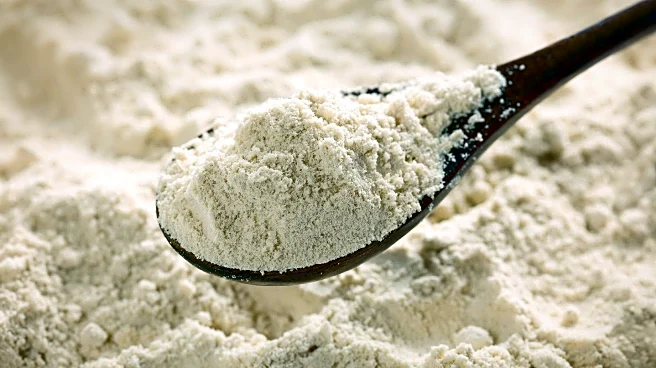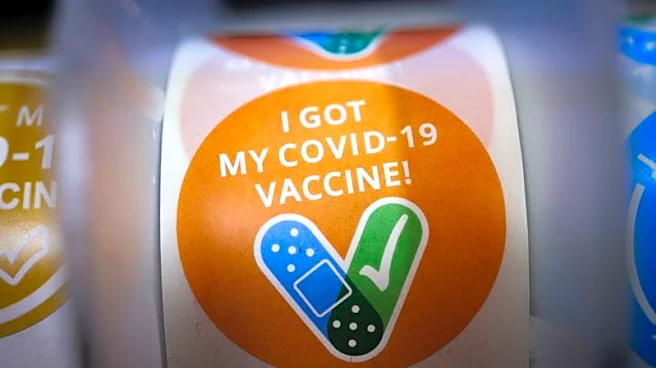What's Happening?
Consumer Reports has conducted an investigation revealing that several popular protein powder and shake brands contain lead levels exceeding what is considered safe for daily consumption. The report highlights that nearly all plant-based protein products tested had elevated lead levels, with two specific products, Naked Nutrition Vegan Mass Gainer and Huel Black Edition powder, containing significantly high amounts of lead per serving. The investigation underscores the lack of regulation by the U.S. Food and Drug Administration (FDA) on vitamins and supplements, which allows these products to be sold without safety testing for heavy metal contamination. The findings are particularly concerning given that the FDA's guidelines suggest children should not be exposed to more than 2.2 micrograms of lead per day, and adults no more than 8.8 micrograms.
Why It's Important?
The discovery of high lead levels in protein supplements is significant due to the potential health risks associated with lead exposure, including developmental issues in children and various health problems in adults. The lack of regulatory oversight by the FDA means consumers must rely on independent testing and reports to make informed decisions about their health. This situation highlights the need for stricter regulations and safety standards for dietary supplements to protect public health. The report also challenges the widespread belief that high protein intake is necessary, suggesting that Americans can meet their protein needs through regular food consumption without resorting to supplements.
What's Next?
As the report gains attention, it may prompt calls for increased regulatory measures and safety testing for dietary supplements. Consumers are advised to be cautious and seek out products with verified lead test results, potentially shifting demand towards animal-based proteins, which were found to have lower lead levels. The findings could also lead to increased scrutiny of manufacturing processes and the environmental factors contributing to lead contamination in plant-based proteins.
Beyond the Headlines
The investigation raises broader questions about the dietary supplement industry and the role of consumer awareness in ensuring product safety. It also highlights the environmental impact of agricultural practices, as plants are susceptible to absorbing lead from soil, air, and water. This could lead to discussions on sustainable farming practices and the need for transparency in ingredient sourcing and manufacturing processes.












